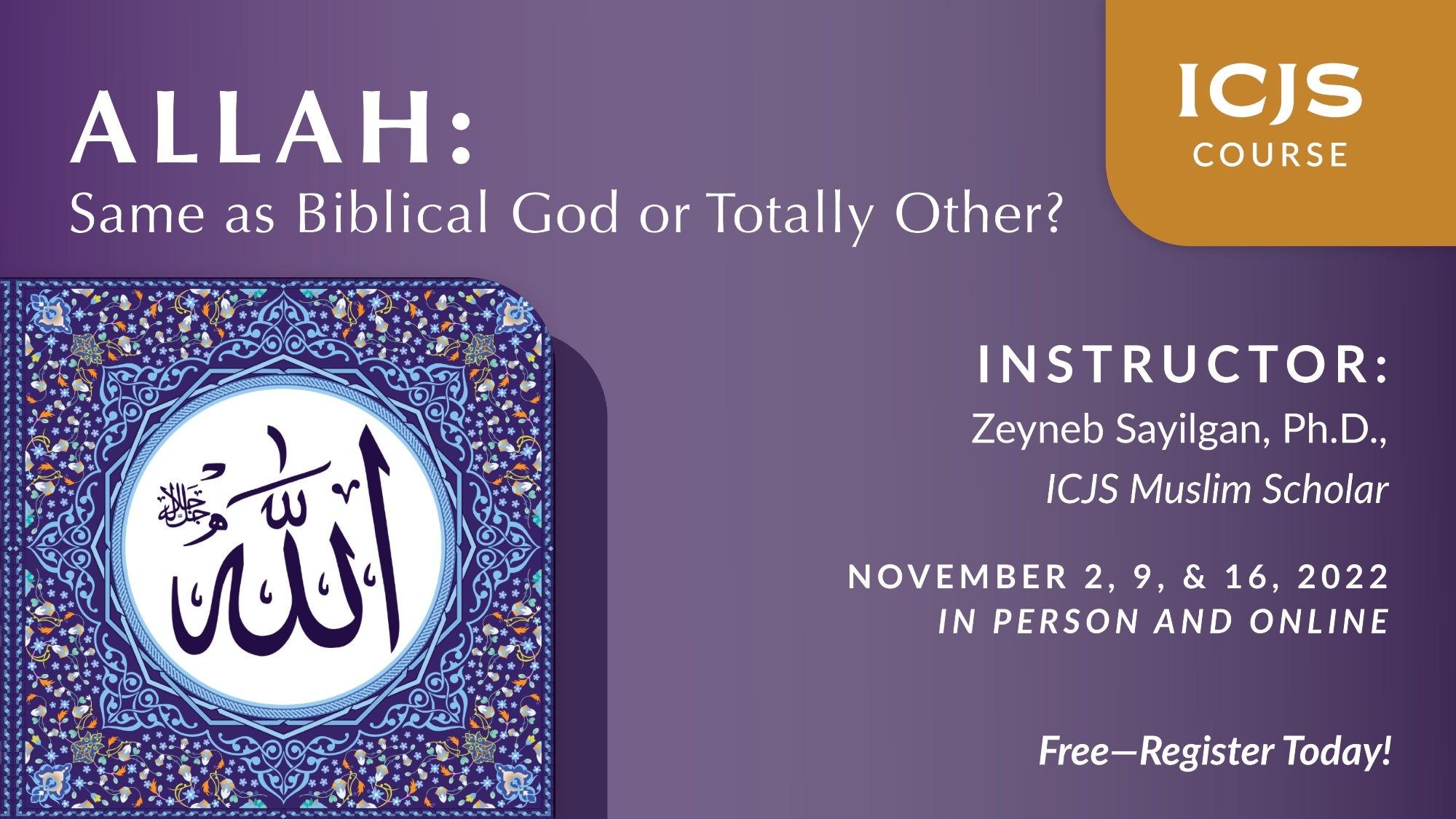About Zeyneb Sayilgan
Zeyneb Sayilgan, Ph.D., is the Muslim Scholar at ICJS, where her research centers around Islamic theology and spirituality, Christian-Muslim relations, and the intersection of religion and migration.
Online
Muslims refer to the One God as Allah. In the popular imagination, the Muslim God is often perceived as alien and other than Christian and Jewish conceptions of God. In this three-week course we will turn to primary sources like the Qur’an and Hadith (Prophetic sayings) and explore what pictures emerge of the Divine. Participants will engage with secondary sources by reading and listening to Muslim voices as they relate to God through prayer, poetry and music. Through study of the Muslim conception of God, we will uncover a Qur’anic posture of interreligious dialogue that affirms sameness and difference alike.

Zeyneb Sayilgan, Ph.D., is the Muslim Scholar at ICJS, where her research centers around Islamic theology and spirituality, Christian-Muslim relations, and the intersection of religion and migration.